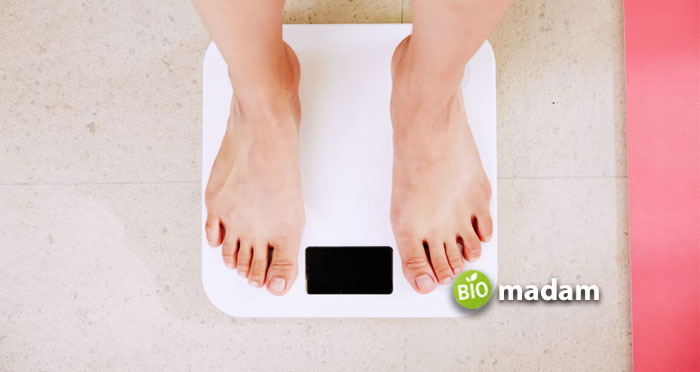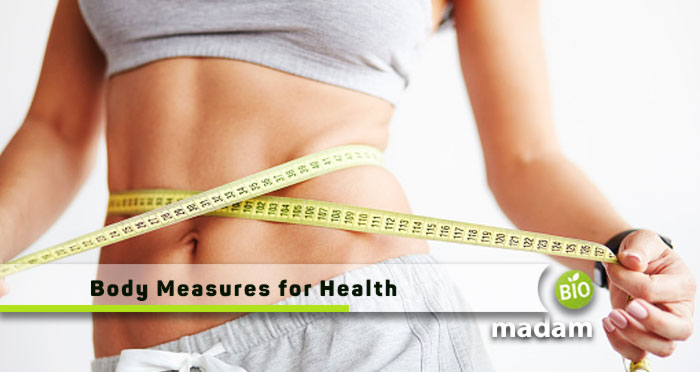Many people who suffer from obesity and the overweight problem still think that they don’t need to improve their eating habits because their BMI (Body Mass Index) level is still within the normal range, but the truth is, your weight doesn’t only depend on your BMI. Your height and body measures should also be considered when it comes to determining your healthy weight range.
It might sound a bit complex to understand, but basically, knowing your body measures is just as important as knowing your BMI because it will also tell you if you have a healthy weight or not. In this article, we will discuss different body measures and why are they important for maintaining good health.
Calf Measurement
When it comes to calf measurements, people with smaller calf circumferences may experience more health problems than people who have bigger calf circumference measurements. It has been also found that people who have smaller calves or ankles are more at risk of developing diabetes because their muscles might not be able to properly take up glucose from the bloodstream and this will increase insulin resistance over time. Thus, you must measure your calves just below your knees while standing on a flat surface. While it depends on your age, of which you can learn more here, there are guidelines when it comes to measuring your calf circumference. If you’re an average woman then your calves should be about 15 inches (40cm) in circumference, and if you’re an average man then your calves should be about 17 inches (43cm) in circumference.
Waist to Height Ratio
This body measure is another important factor when it comes to measuring your risk of developing obesity and another chronic disease. According to research, people who have excessive fat surrounding their waistline tend to experience more health problems because they might develop insulin resistance which can lead to diabetes. Having a large waist circumference could also increase the risk of heart disease by increasing cholesterol levels in the bloodstream – thus being one of the main factors that contribute to high blood pressure and stroke. All you have to do is check the size of your waist and divide it by your height, then compare it with a chart for a more accurate result. If your waistline measures more than half of your height, then you are at risk of developing heart disease, diabetes, and even cancer.
Hip Circumferences

This body measure can also help determine if your weight falls within the healthy range or not. For women, the average hip circumference should be 88 centimeters (35in.) and for men, it should be 102 centimeters (40in). So if your hip circumference is below 35 inches (88cm) for women or 40 inches (102cm) for men, then having an underweight condition might increase your risk of developing health problems in the future because your BMI level might fall outside the normal range. However, if your hip circumference is larger than 40 inches for men or 35 inches for women, then you might also have a higher risk of developing obesity.
Muscle Mass
The amount of muscle mass in your body also plays an important role when it comes to maintaining a healthy weight. Muscle is more dense than fat and this means that it takes up less space than fat and thus you might weigh just slightly higher than someone with the same height and body frame who has a high percentage of lean muscle mass. However, having more muscles will boost your metabolism which will help you burn calories faster. You can measure your muscle mass by using a fitness band and pressing it against the bony prominences of your body to estimate the amount of fat over them. If you have an average or low amount of muscle mass then this means that you might need to work on building more muscles through strength training to boost your metabolism and burn more calories even when you’re resting.
Arm Measurement

People who have very small arm circumferences might also experience health problems in the future because their muscle strength will likely be weaker than average. It also means that you don’t have enough muscles on your arms to help you fight off any kind of infections that can cause injury on top of hindering your ability to carry out daily activities. The average arm circumference for women is about 10 inches (25cm) and the average arm circumference for men is about 11.5 inches (29cm). However, your wrist circumference will likely be a better indicator of your overall health because this is the first place where you’ll notice muscle loss if you have a deficiency, a medical condition, or disease.
Wrist Measurement
For women, having an average wrist circumference of 6.3 inches (16 cm) or fewer places you at risk of developing osteoporosis while for men, having a wrist circumference of 7 inches (17.8 cm) or fewer increases your risk of developing osteoporosis in the future according to research. It has been found that people who have small bones are more likely to have weaker muscles which means they might experience more problems when it comes to lifting heavy objects without injuring their wrist joints. Furthermore, very small bones also increase your chances of experiencing osteoporosis in the future because of a lack of calcium and minerals that are necessary for strong bones.
Skinfold Measurements
Your skinfold measurements can tell you a lot about your overall health. For example, people who have a high body fat percentage will likely experience more health problems than people who have a low body fat percentage. It is also important to know that your fats are distributed throughout your entire body and not just around the waistline. Therefore, you can measure your body fat percentage by using an accurate skinfold caliper to grab folds of your skin and subcutaneous fat tissue. If you’re a woman then you should have about 25-32% body fat, while if you’re a man then your body fat percentage should be anywhere between 18-25%. This method is ideal for people who are trying to lose weight because it helps keep track of their progress much easier.

Science shows that knowing your body measurements is important for maintaining good health because it will help you monitor any changes that might be taking place in your body and this will enable you to take necessary precautions and/or seek medical advice right away. However, keep in mind that while these measurements may indicate potential health problems, they are just tools and it’s best to consult with a doctor if you’re concerned about your measurements.

Hi, they call me Jenna, and I am also known for achieving a gold medal during my Ph.D. in science life. I always had a dream to educate people through my utmost writing hobby. So, I chose this blogging path, and Biomadam gave me this opportunity to present for them. I now stand to entertain you. Continue reading my articles & discuss if you’ve any confusion through the comment section below.

